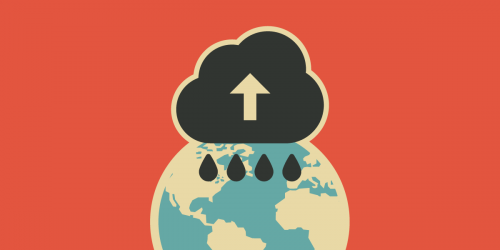EFF's international team advocates for privacy, free speech, and an open Internet in international venues and across the world. We expose mass and unwarranted surveillance, and educate unlawfully targeted users on how to protect themselves and their colleagues. We use individual cases globally to highlight the effect of technology on human rights, and defend technologists from persecution and detention wherever they live.
Ensuring users' voices are heard in global policymaking
Internet users are impacted not only by rules and policies made in their own country, but those made around the world. EFF's international team fights to make sure that Internet users are heard in these processes. They include copyright treaties developed by the World Intellectual Property Organization (WIPO), trade agreements such as the now-defeated Trans-Pacific Partnership Agreement (TPP), domain name policies developed by ICANN, and increasingly, a shadowy web of cross-border industry agreements forged in corporate backrooms.
Where international bodies lack an adequate rights-based framework for their deliberations, EFF also works to fill the gap by developing global principles such as the Manila Principles for Intermediary Liability and the Necessary and Proportionate principles. We use these to promote users' rights on the global stage in bodies such as the United Nations General Assembly, the Organization for Economic Co-operation and Development (OECD) and the Internet Governance Forum (IGF).
Fighting unchecked surveillance laws and norms
We fight laws and treaties that seek to legitimize mass surveillance and weaken civil liberties and transparency. We work to spotlight privacy violations throughout the world and defend against influential governments seeking to increase law enforcement and intelligence agencies’ power. EFF fends off proposals for mandatory data retention, wiretapping-friendly legislation, national identity schemes, biometrics initiatives, and invasive location tracking. EFF works with digital rights organizations around the globe to fight for privacy, and pressure telecommunications companies to protect the privacy of their customers.
Exposing Institutional Censorship
EFF recognizes that much of today’s free expression takes place on corporate platforms, which apply their own rules and are subject to the legal requirements of different jurisdictions. While in recent years most major companies have produced transparency reports that show content takedowns made at the behest of government actors, there is little to no transparency regarding takedowns made on the basis of terms of service. Furthermore, companies often prohibit certain legal content, such as nudity.
We encourage social media companies to operate with greater transparency and accountability. To that end, we partner with Visualizing Impact on Onlinecensorship.org, which collects reports from users in an effort to shine a light on content takedowns. We also regularly advocate for companies to make policy changes, particularly when their policies result in discriminatory practices.
Protecting vulnerable populations from digital attacks
EFF works to protect vulnerable populations from digital attacks. We seek to compensate for the asymmetry between powerful attackers and targets who do not necessarily have a strong, technical understanding of digital security or a team of experts at their disposal. We research the threats that these populations face, such as state-sponsored malware. We raise awareness of digital privacy and security issues through our Surveillance Self-Defense project and conduct security trainings based on these materials. We also defend the rights of security researchers through our work on export controls and EFF's Coders Rights Project. so that these researchers can continue to contribute to the safety and security of vulnerable populations.
Defending Technologists and Censored Voices Across The World
Throughout its history, EFF has defended those who have been unfairly targeted with prosecution and detention simply because they used technology to exercise their civil liberties. With our Offline project, EFF seeks to highlight the international cases of individuals who have used technology to speak out against abuse, or have built and shared technology that protects or extends human rights, and have been imprisoned as a result. We work with the communities that support these prisoners of conscience, draw attention to their predicament, and work for their release.
International Topics
- UK Investigatory Powers Bill
- Trade Agreements and Digital Rights
- Biometrics
- Broadcasting Treaty
- Content Blocking
- Export Controls
- International Privacy Standards
- Mandatory Data Retention
- Border Surveillance Technology
- Cross Border Access
- Digital Services Act
- Mandatory National IDs and Biometric Databases
- United Nations Cybercrime Treaty
- Article 13
- EU Policy
- Necessary and Proportionate
- Surveillance Technologies
- ¿Quién defiende tus datos?
- Offline: Imprisoned Bloggers and Technologists
- Shadow Regulation
- Surveillance and Human Rights









